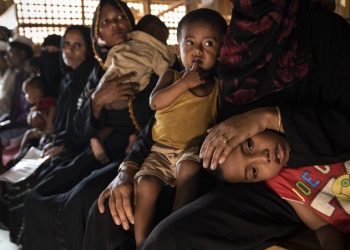Human Lives Human Rights: With the third Conference of the Parties to the Escazú Agreement looming, human rights advocates are raising alarm over the persistent lack of protection for environmental defenders across Latin America and the Caribbean. They call on all nations in the region to swiftly ratify the treaty and urge current parties to reaffirm their commitment to safeguarding these individuals.
“Attacks against environmental human rights defenders in the Americas are constant and often deadly,” declares a rights advocate. The failure of certain countries, including Brazil, Colombia, Guatemala, Honduras, and Peru, to join the Escazú Agreement signals their reluctance to address these threats. Urgent action is needed to uphold this crucial regional treaty.
The Escazú Agreement, the first of its kind in the region, provides vital protections for environmental defenders. Despite entering into force three years ago, less than half of the region’s countries are party to it. Shockingly, some of the world’s most perilous countries for defending environmental rights, such as Brazil and Colombia, have yet to join.
Colombia, for instance, leads the global ranking for killings of land and environmental defenders. Similarly, Brazil and Honduras are among the deadliest nations for these activists. Despite governmental acknowledgments of the risks involved and nominal efforts to address them, the situation remains dire.
Even states party to the Escazú Agreement face challenges in defending environmental defenders. Cases of prosecution against peaceful protesters, as seen in Mexico’s Chiapas state, underscore the ongoing threats these individuals face. Chile’s recent announcement of a protection protocol for human rights defenders is a positive step, though further action is needed to align with the Escazú Agreement’s principles.
As COP3 approaches, states aim to approve an Action Plan on human rights defenders in environmental matters. This plan could mark a significant stride toward protecting environmental activists. It is imperative that states address the collective nature of their work and tackle underlying causes of violence, including economic interests. Additionally, ending the pervasive impunity surrounding attacks on human rights defenders is essential for progress.


















